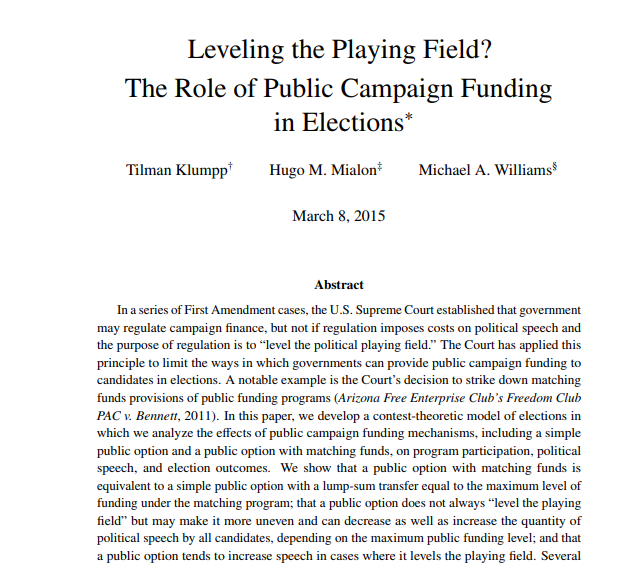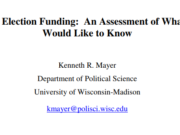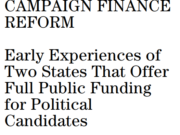In this article by Tilman Klumpp, Hugo M. Mialon, and Michael A. Williams, the authors assess the role of public financing systems in elections. In a series of First Amendment cases, the U.S. Supreme Court established that government may regulate campaign finance, but not if such regulation imposes costs on political speech and the purpose of regulation is to “level the political playing field.” The Court has applied this principle to limit the ways in which governments can provide public campaign funding to candidates in elections. A notable example is the Court’s 2011 decision in Arizona Free Enterprise Club’s Freedom Club PAC v. Bennett, which struck down matching funds provisions of public funding programs.
In this paper, the authors develop a contest-theoretic model of elections in which the eff ects of public campaign funding mechanisms are analyzed, including a simple public option and a public option with matching funds, on program participation, political speech, and election outcomes. The authors’ model demonstrates that a public option with matching funds is equivalent to a simple public option with a lump-sum transfer equal to the maximum level of funding under the matching program; that a public option does not always “level the playing field,” but may perversely make it more uneven and can decrease as well as increase the quantity of political speech by all candidates, depending on the maximum public funding level; and that a public option tends to increase speech in cases where it levels the playing field. In light of the authors’ theoretical results, several of the Supreme Court’s arguments in Arizona Free Enterprise are discussed.
You can read the full study here.














